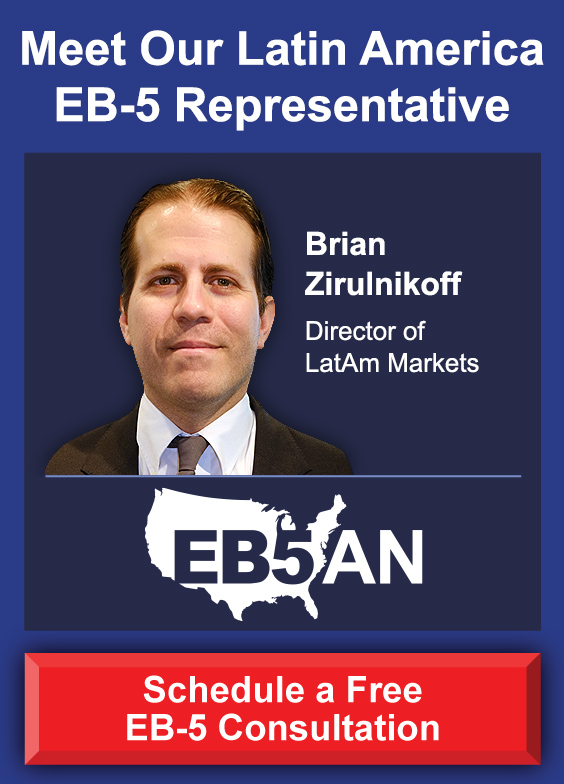Subscribing minors as EB-5 investors is not a new idea, but USCIS has offered little guidance regarding whether it would accept minors as primary applicants and, if so, what criteria must be met for such petitions to be approved. The main issue is that, in general, minors are not able to enter into binding contracts and therefore cannot execute subscription agreements for EB-5 offerings.
During a stakeholder engagement on July 28, 2016, however, USCIS acknowledged that minors can fill the role of primary applicant on I-526 Petitions. If a minor acts as an EB-5 investor, he or she must prove by a preponderance of the evidence that the investment contract is valid and not voidable.
But because USCIS has not provided clear guidance or specific policy regarding what constitutes sufficient evidence of a valid investment contract, regional centers may still be hesitant to accept minors as EB-5 investors. Without a clear path through the EB-5 process, minors present greater risk of denial. In addition to these higher risks associated with subscribing minors to EB-5 investments, it is unknown how members of Congress, the media, or others might respond to this scenario, and controversy may arise over the inclusion of minors as EB-5 investors. As a result, regional centers should carefully consider drafting policies regarding whether to include minors in EB-5 offerings and, if so, under what circumstances.
While the laws of other nations may provide means for minors to enter into valid contracts, it is uncertain what evidence would be required by USCIS to prove the validity of such contracts. One U.S. law, the Uniform Transfers to Minors Act (UTMA), could potentially provide a mechanism for subscribing minors to EB-5 offerings.
What is UTMA?
The Uniform Transfers to Minors Act was created in 1986 by the National Conference of Commissioners on Uniform State Laws to expand and replace the Uniform Gifts to Minors Act (UGMA). Widely accepted in the U.S., UTMA has been adopted by every state but one (South Carolina) as well as the District of Columbia and the U.S. Virgin Islands.
Under UTMA, any transferor may transfer any form of property to a minor. The transfer is considered indefeasible—meaning the transfer is valid and not voidable. Property is transferred to minors through a designation of ownership, which forms a custodianship that functions in many ways like a trust or guardianship. This custodianship continues until the minor is 21 years old. While similar in function to a trust or guardianship, the custodianship created under UTMA is not a distinct taxpayer or separate legal entity. In this custodianship, the custodian is not the owner of the property—it is vested in the minor.
The process of transferring property to a minor under UTMA requires a designation of ownership that identifies the custodian and minor as well as the enacting state. For example, “Sheila Smith, as custodian for Jonathan Brandt under the Florida Uniform Transfers to Minors Act.”
How Might UTMA Be Used in EB-5?
Since UTMA allows a custodian to indefeasibly transfer any form of property, including securities, to a minor, the law provides a likely—though as yet unproven—means of subscribing minors to EB-5 investment offerings.
UTMA satisfies one of the primary conditions for subscribing to an EB-5 offering by allowing a minor, through an adult custodian, to enter into a valid, binding contract. Furthermore, the way UTMA allows a custodian to enter into a contract on behalf of a minor, the EB-5 investment can be issued in the name of the minor, not in the name of the adult custodian, which is essential for an EB-5 investment to be recognized as valid by USCIS. For EB-5 investors, jurisdiction is an important consideration, and because UTMA allows jurisdiction to be determined by the location of the custodial property, it can be used by foreign nationals living outside the U.S. One other important requirement for EB-5 investors is the active management of the investment; UTMA allows the custodian to actively manage the investment until the minor is 21, at which point management rights are transferred.
Each of these issues will be explored in more detail below:
UTMA Allows Minors to Enter into Valid, Binding Contractual Agreements
Under most U.S. state laws, minors are restricted from entering into valid, binding contracts. Such contracts are not considered enforceable and, in most states, are voidable by the minor. In order for an EB-5 Petition to be approvable by USCIS, it must be approvable when it is filed. This means that even if a contract is reaffirmed by the investor as an adult at the time the petition is adjudicated, if the investor was a minor at the time the contract was filed, it will be considered voidable and unenforceable by USCIS.
UTMA, however, allows minors to enter into valid, binding contracts that should be considered enforceable by USCIS. Because an adult custodian enters into the contract on behalf of the minor, the contract is treated as any other contract made by an adult—it is fully enforceable and cannot be voided by the minor. Under UTMA, the transfer of property cannot be voided or rescinded by the minor, and so the minor has no basis to seek rescission or redemption.
For decades, UTMA has been used to transfer property, including securities, to minors. Over that time, case law has established that such transfers are enforceable under UTMA. But to help prove the validity of an EB-5 investment made by a minor using UTMA, the investor should provide USCIS with a certification by the adult custodian indicating he or she was the one who selected the investment, subscribed to the offering, provided the investment capital, and will manage the investment while the investor is a minor. Once the minor reaches the age of majority, control of the investment will automatically be vested in the investor.
UTMA Allows Minors to Purchase Securities through Custodians
UTMA allows a minor’s parent, guardian, or other adult to act as a custodian and purchase any form of property on behalf of the minor. For EB-5 purposes, the property being transferred to the minor should be the limited liability company or limited partnership interest in the EB-5 new commercial enterprise (NCE). Under UTMA, the security may be uncertificated and registered under the name of the adult custodian with the proper designation that the adult is serving “as custodian for” the minor under the appropriate state’s Uniform Transfers to Minors Act.
Certificated securities are also allowable under UTMA, but because the certificate for such securities must be held by another adult besides the custodian, they are not suitable for EB-5 purposes. As a result, for an EB-5 offering to be compatible with UTMA, the offering should not issue certificates of membership or interest in the investment. Instead, the offering should register the names of all members or limited partners in its records to ensure the EB-5 security being purchased by the minor will be classified as an uncertificated security.
UTMA Allows Minors to Purchase Securities in Their Own Names
One of the key aspects of UTMA that makes it compatible with EB-5 investments is that it does not require the EB-5 security to be issued in the name of the adult custodian and then transferred to the minor—it allows the security to be issued in the minor’s name. For an EB-5 petition to be approvable by USCIS, the investment must be made by the petitioner using his or her own funds. A parent or guardian could not, for example, purchase an EB-5 security and then gift that investment to his or her child. But because an EB-5 investment’s source of funds may be a gift, a parent or guardian can, through UTMA, provide the source of capital for the purchase of an EB-5 investment and act as the custodian for the minor to purchase the security in his or her own name.
Under UTMA, the custodian purchases the security on behalf of the minor and does not at any point have any ownership of the custodial property. From the date the security is issued, the minor is the legal owner of the property. Again, creating this custodianship under UTMA requires the proper custodial designation, and through that designation, the custodian is able to purchase custodial property, in this case a security, that is then issued in the minor’s name and fully owned by the minor.
UTMA Allows Jurisdiction To Be Determined in Several Ways
One of the other aspects of UTMA that makes it viable for EB-5 investments is its flexible treatment of jurisdiction. Essentially, the governing jurisdiction of a transfer to a minor through UTMA can be the state in which the minor resides, the state in which the custodian resides, or the state in which the property is located.
If the minor or adult custodian is currently living in the United States, jurisdiction could be determined as the state in which the minor or custodian resides. But because many EB-5 investors do not reside in the United States, determining jurisdiction based on the location of the minor or custodian would not be feasible. UTMA avoids any issues that would arise due to the investor’s location by including the ability to use the EB-5 investment’s state as the governing jurisdiction.
While UTMA does not itself discuss how to determine the location of an unissued membership or limited partnership interest in a security offering, such as an EB-5 fund, how this issue is handled by other laws suggests the location would be determined by either the issuing entity’s principal place of business or the state in which the entity was formed. If the entity’s principal place of business is not located in the state where the entity was formed, the principal place of business should be the location used for determining jurisdiction.
Because UTMA does not provide direct guidance regarding how to determine the jurisdiction of the securities issuer in an EB-5 offering and USCIS has not formed a policy on this issue, it is conceivable that the basis for determining the location of the EB-5 fund may be called into question by USCIS during adjudication—likely resulting in an request for evidence (RFE). If such a situation should arise, Section 21 of UTMA provides a savings clause that allows any state that has adopted UTMA to enforce the transfer of custodial property even if it is not the state identified in the designation.
UTMA Allows Custodians to Manage Custodial Property
The EB-5 Program requires each EB-5 investor to take an active role in the management of the investment. For minors, this would likely be problematic. UTMA does, however, enable the custodian to manage the property for the minor until the minor reaches the age of majority.
For EB-5 investments organized as limited partnerships, for example, this provision would allow the custodian to exercise the rights of a limited partner, thereby meeting the EB-5 requirement of active involvement in the investment. Once the minor reaches the age of majority, the right to manage the custodial property automatically shifts from the custodian to the investor.
Conclusion
While there is not yet any clear indication of what specific evidence USCIS will require for EB-5 petitions by minors to be approved, UTMA seems to provide an approvable means for minors to pursue the EB-5 Program. UTMA allows a minor to enter into a valid, indefeasible contract and purchase securities in his or her own name—and provides a mechanism for the active management requirement of the EB-5 Program to be met.
Each state’s version of UTMA may vary, and so anyone considering the use of UTMA to subscribe a minor to an EB-5 investment offering should carefully review the specific state law.










